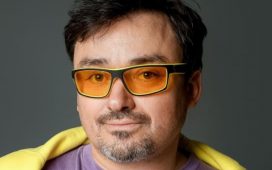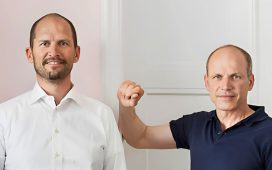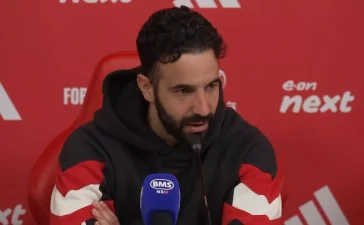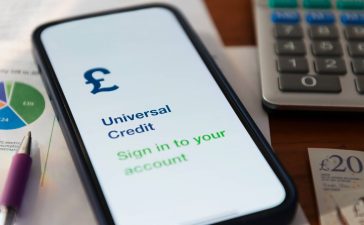Dr. Bosun Tijani is a familiar name for anyone who follows tech in Nigeria. Even before being appointed Minister for Communications, Innovation, and Digital Economy last year, he was an accomplished business leader and entrepreneur. The Co-Creation Hub, which he co-founded in 2010 and led as a CEO, is one of Africa’s most prominent tech innovation hubs, helping launch and nurture startups in Nigeria, Kenya, Rwanda, and Namibia.
A year into office, Tijani was in New York last week as a part of Nigeria’s delegation to the United Nations General Assembly. He spoke to Rest of World’s founder and publisher, Sophie Schmidt, at an event organized by Rest of World, in partnership with Luminate, that featured a series of conversations about the role of AI in emerging markets.
The following interview, which was prepared from the transcript of the conversation from the event, has been edited for clarity and length.
Honorable Minister, we met about 12 years ago. I was in Nigeria for the first time. And you were already a big deal, even then, in the Nigerian tech scene. You were running a tech incubator called the Co-Creation Hub. Now, you’re in the government. How is it going?
I think the good news is I consider it to be an extension of being a part of the startup ecosystem. I think people misunderstand the government, particularly in Africa. The last 12 months have been enjoyable. But it’s tough. I think that’s what we typically see in the startup ecosystem, right? We believe we can help address difficult challenges in society. So government for me is an extension of the life I’ve been living for the last 15 years.
What is the difference for you between running a tech business and running a government ministry?
It comes back to the bureaucracy. The fact that there are things that you need to follow. I think the biggest difference is also the leverage. So you have a platform through which you can actually engage and do things at scale. I think that’s one of the limitations of this type of business and, by extension, civil society. On the African continent, where we see many things in society that we think we should help correct. But even when you have really great ideas — and I’ll give you an example, which is in education: We’re working on trying to see how we can use technology to help enhance learning outcomes in schools. We’ve worked with organizations like the [Bill & Melinda] Gates Foundation on exciting projects. But the reality is that most schools on the continent are still being regulated and managed by the government. So most students are still going to an education system that the government is responsible for. So you find that all these fantastic ideas about technology can help enhance learning outcomes, but people are not getting the opportunity to get them to scale because they have to go through the government and there’s the bureaucracy in government. I see the opportunity coming into government. If we find a smart way of engaging government, you can get there faster. So for me, I think that’s the biggest difference. It’s a bigger platform. It’s a fantastic opportunity to scale.
Read Profile: He was a tech rebel. Then he joined the government.
And using the resources of government and the platform of government, I imagine, is a big part of your 3 Million Technical Talent (3MTT) project. Can you tell us about that?
The 3 Million Technical Talent project was inspired by our President [Bola Tinubu]. When he got elected, he said he was going to create 2 million technical jobs. And that’s based on the fact that Nigeria has about 230 million people. I think about 60% of those are under the age of 30. When you look around the world, you find that most countries are aging, and the population is dwindling as well. So it’s a fantastic opportunity for most African countries, not just Nigeria, to create a strong workforce for technology. I believe there is an immense opportunity to accelerate technology talent in the country. And by doing so, you then create a huge workforce that can help solve so many of the challenges that we have using technology. That’s why we decided to launch this program, with the support of a number of technology companies. The goal is to, over the next 3 to 4 years, train 3 million people in tech. And we have a phased approach where we’ll prototype the 1%, then we’ll move to 1o%. We scale up. When we put out the application, we got about 1.7 million applicants to join the program. That’s really exciting. Now, in the second phase, a number of these folks are getting jobs.
I’m pretty sure that in a few years, Nigeria will be like India, where we’re supplying technological talent all over the world and eventually, that’s also going to inspire or accelerate the development of the technology ecosystem.
Nigeria has been an innovator on the continent. The innovator on the continent since forever. Most of the African unicorns have come from Nigeria. And Nigerian engineers work all over the world. But it is also true that a lot of African startups have really failed to scale. For those who are less familiar with African tech, why is it so hard for African startups to scale?
When you look at countries like the U.S., people tend to not take into consideration the contribution of the academic institutions for strengthening startup technology in any society. You’re going to take into consideration funding for research, which most of the time will lead to research. Then you get to the point where some startups begin to build operations. Then you find people who have pretty good solutions. Academic institutions are part of a larger technology ecosystem that is missing. For the African continent, not just Nigeria, there’s not that kind of funding for ecosystems. You don’t find people who actually understand that there’s an ecosystem that makes it possible for these things to happen. I think that’s the missing part: We need more people funding the ecosystem. We need more people funding talent programs. You know, one of the great examples in this space is Andela. You can also see the pivot Andela has made because they had to go commercial, which, in a way, is a sad story for the ecosystem on the continent because you need people who are investing in that talent.

Rest of World
Let me ask a simple question about AI: How much AI is there in Nigeria right now and what is it being used for?
You can see it all over the place, largely in small pockets. But their ambition is just catching on. One thing we’ve done over the last 12 months, which I think now puts AI on the lips of nearly every media organization in Nigeria, is that the government has made it clear that this is something we want to do. In particular, we’re supporting a local startup to build a large language model. Because as you know, in Nigeria, we have about 4 or 5 big languages. What we’re not doing is saying we should do all of it because we want to take a close approach. If all we do is collect data and shipping data, we’re not going to build the capabilities to probe what’s possible. The government has significant storage capacity and we’re working to see how we can optimize it with a very unique software that allows us to be able to process or run off models.
We will be funding a number of startups and research projects and we think that’s also going to help accelerate the understanding and usage of AI in Nigeria. A couple of weeks ago, we also decided to use an AI model to digitize our national archive. We’re also on the path to starting to digitize — and we’re talking to Microsoft about a Copilot model — to see how we can train government data so government services and employees can use it better. So we’re seeing a lot of activities, and in the next 24 to 36 months, we can start to see more concrete, guided use cases that can hopefully inspire not just Nigeria but other countries in Africa.
Let me turn to China for a second. I imagine you are being courted by two great powers — China and the U.S. And Nigeria, of course, is an important ally for both countries. Just two weeks ago, President Xi Jinping and President Tinubu met and the Chinese government announced that they are encouraging their tech giants to invest much more heavily in Nigeria. Since it’s just us here, any chance you want to break some news and tell us which one you’re going to go with?
No, absolutely not. [Laughter]
Then let me ask, who do you consider your most important international ally to be? And how will you balance those interests?
That’s a very difficult question, Sophie. My interest will always be in protecting society. That will always be on my mind. The weight of decision will always go towards where you think you’re going to find allies who share the same values as you in terms of how you protect society. That’s one thing. But also, I’ve been in this position for the last 12 months. I think most of the time, what we have that is missing — if we take ourselves out of the competition — is leadership. As a leader and the people you engage with, do you have clarity in terms of what you want and what you don’t want? If you don’t, if you engage someone and you say “Do whatever you like,” the person will take as much as they can. I honestly do struggle with saying, you know, [who I would go with] if I have to choose. Of course, if I get GPUs from China, I’ll take it.
The perfect diplomatic response. Do you see yourself going back into the private sector or are we going to see a lot more of you on the G20 stage?
It’s a difficult question. No, I see myself in the government, in the public sector. For me, it’s always been about staying on the side that’s not driven by financial returns, strengthening the ecosystem, giving opportunities to more people. If I apply the same passion, I see a huge opportunity in the public sector. Whereas within government, we have gaps. You’ll continue to see me in government in some shape or form.










